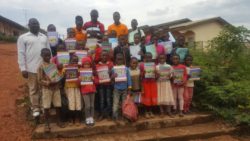CULTURE ABROAD
Five days ago, I was on the other side of the globe. Exhausted from twelve weeks of attempting to keep up with this fast-paced Mecca of the international business world, I was still not ready to extract myself from the extrovert’s haven that is Shanghai. This is the land of business cards and alcohol, where the networking maniacs of the West flock to jump into the Eastern financial “boom”, assuming that the “bust” is nowhere in sight. For one brief summer, I was a part of this cultural mish-mash, ecstatic to surround myself with the expats, entrepreneurs, and “students of life” that are so enthusiastic to be exposed to the challenges of living in such a foreign, yet increasingly Westernized, environment. Being a student of psychology, the best way for me to summarize my experience in China is to describe the mental processes I used to adapt. Looking back on my little adventure, I can easily identify the points at which I hit the various stages of Culture Shock, and it is through this cycle that I feel others can catch a better glimpse of my path of growth.

 Former Southern Cameroon (Northwest & Southwest regions of Cameroon) is considered a minority group in Cameroon. Approximately 20% of the population (5 Million) of Cameroon are from and reside in these two English-speaking regions. This minority population has been marginalized both in public institutions and state positions. The feeling of marginalization started developing and growing among the anglophone population, when the 1961 Federal Constitution was changed by President Ahidjo in 1972; changing the status of Cameroon from the Federal Republic, to the United Republic of Cameroon. The sentiment started to develop among the anglophone population that the francophone population was better represented politically, economically and socially. This fueled claims of self-determination within the Anglophone population. (ICG 02/08/2017).
Former Southern Cameroon (Northwest & Southwest regions of Cameroon) is considered a minority group in Cameroon. Approximately 20% of the population (5 Million) of Cameroon are from and reside in these two English-speaking regions. This minority population has been marginalized both in public institutions and state positions. The feeling of marginalization started developing and growing among the anglophone population, when the 1961 Federal Constitution was changed by President Ahidjo in 1972; changing the status of Cameroon from the Federal Republic, to the United Republic of Cameroon. The sentiment started to develop among the anglophone population that the francophone population was better represented politically, economically and socially. This fueled claims of self-determination within the Anglophone population. (ICG 02/08/2017).